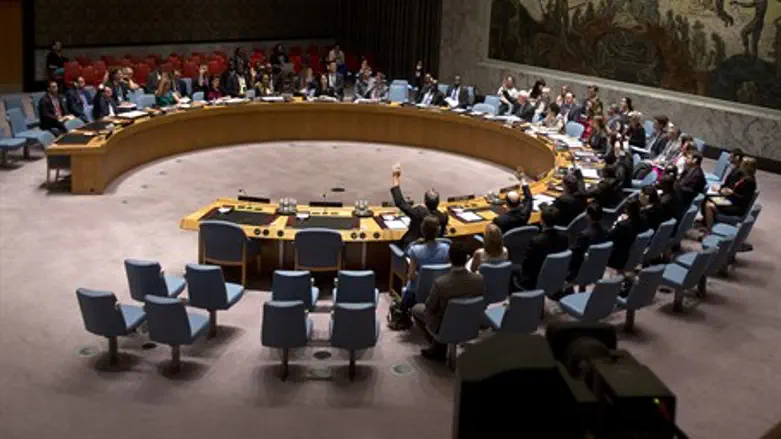
The United States and Russia are drafting UN resolutions aimed at ramping up global efforts to choke off the Islamic State (ISIS) group's sources of financing, the envoys said Tuesday, according to AFP.
The proposed new Security Council measure would build on a resolution adopted in February that sought to cut off millions of dollars in earnings from ISIS smuggling of oil and antiquities.
United States Ambassador Samantha Power told reporters that the draft resolution "will consolidate and streamline the council's recent efforts on ISIL financing" and introduce "new steps to make the sanctions more effective."
The measure could be adopted around December 17 during this month's American presidency of the Security Council, noted AFP.
Russian Ambassador Vitaly Churkin separately told reporters that he was also discussing a draft measure to "tighten up" the anti-ISIS financing measures.
Power said the United States would be looking at the Russian proposals to "see how these efforts come together," but it was unclear if there would be agreement on a single draft.
There is a "shared objective," Power said.
Russian President Vladimir Putin on Monday accused Turkey of shooting down a Russian warplane to protect ISIS oil routes across the border from Syria to Turkey.
Putin said oil produced in ISIS-controlled areas were being transported by tankers to Turkey "on an industrial scale."
An angry Turkish President Recep Tayyip Erdogan later rejected Putin’s comments and declared he would be ready to quit office if Putin’s allegations were proven.
Several days ago, Erdogan denied Russian accusations that Ankara was collaborating with ISIS, saying his country's fight against the jihadists was undisputed.
But speculation over possible Turkish involvement with ISIS has loomed large since a senior Western official leaked details of a U.S. special forces operation in May to kill ISIS leader Abu Sayyaf, wherein he said evidence was found that Turkey was one of the main buyers of ISIS's oil.
A report by the UN's Al-Qaeda monitoring team released in November last year estimated that the jihadists earn $850,000 to $1.65 million per day from oil sales.
American officials, however, now say that oil is no longer the main source of revenue for ISIS.
The resolution adopted in February calls for sanctions against individuals and entities that trade in oil with IS and urges all 193 UN countries to take "appropriate steps" to prevent the trade in cultural property from Iraq and Syria.
AFP contributed to the report.
